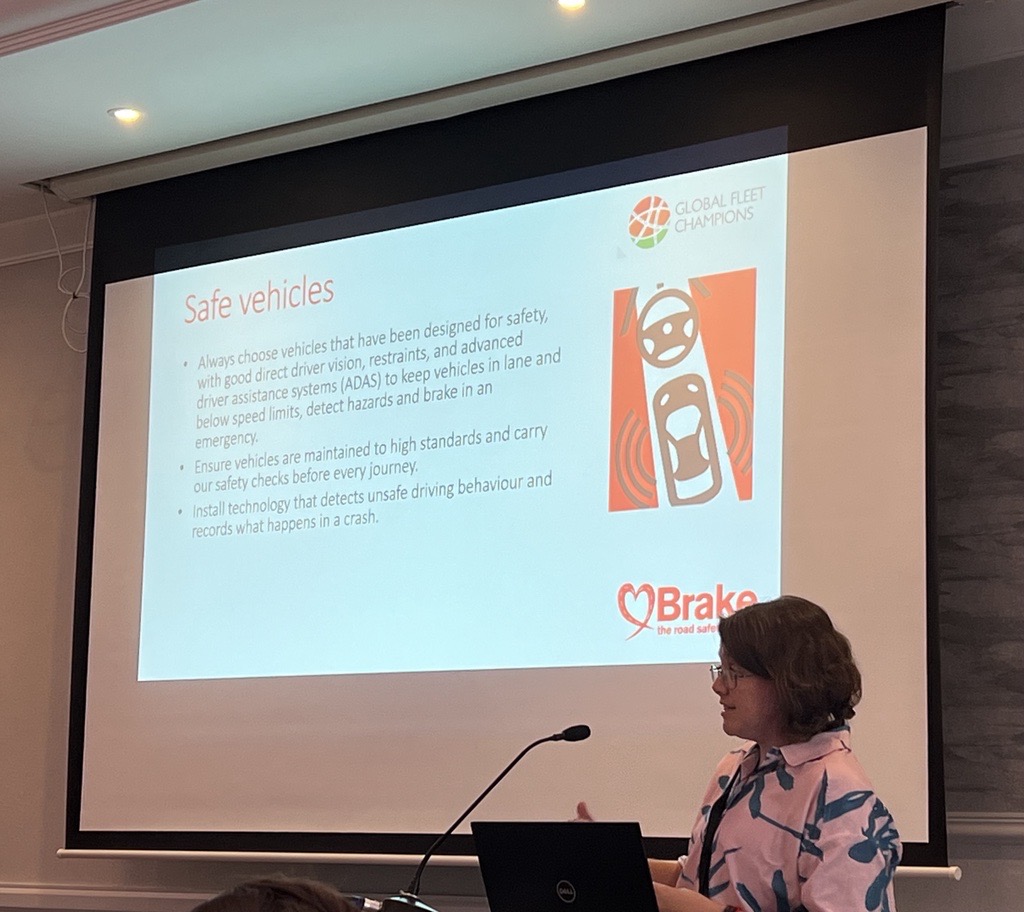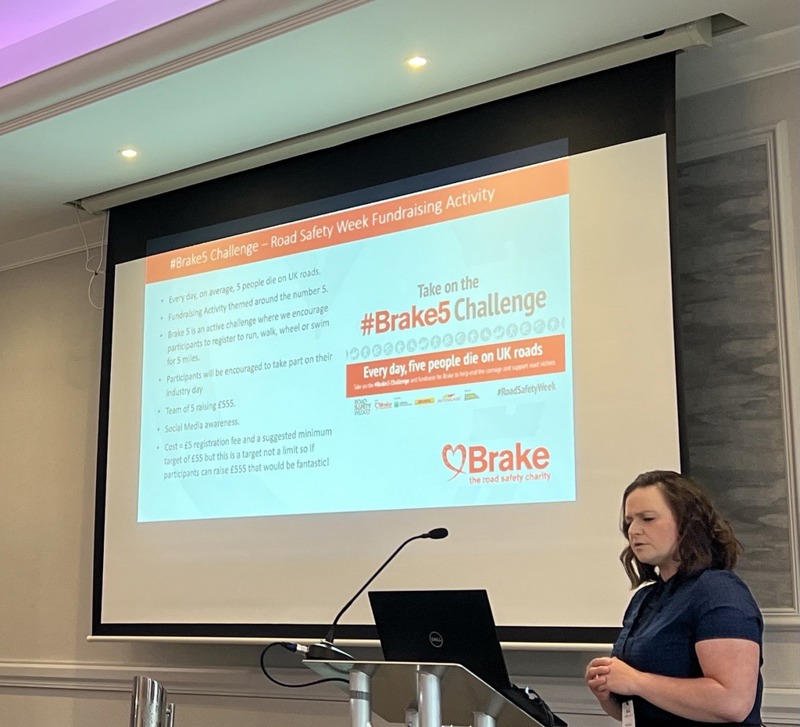
Every day five people are killed on the UK’s roads. More than 80 people are seriously injured, or one every 16 minutes.
The economic cost is put at £9.9 billion per year, according to the Department for Transport. The cost of a fatal crash is put at £1.7 million.
At the Fleet200 Strategy Network meeting this month, representatives from road safety charity Brake, said excess speed is given statistically as a contributory factor in a third of fatal road crashes.
But Brake campaign manager Lucy Straker (pictured above) said: “Speed is always a contributory factor to a road crash.
"Whether or not a vehicle is judged to have been speeding, the fact that it was involved in a collision means it was going too fast to have stopped in time.”
Lorraine
In 2020, Lorraine was cycling home after finishing work at a school. She was wearing a helmet, high visibility vest and cycling jacket. It was about 6.20pm. As she signalled to turn right she was hit by a car travelling at 44mph on a 30mph rural road.
Lorraine went over the top of the car and ended ended up 27 metres from the point of impact. She dies from her injuries at the scene.
The driver was found guilty of causing death by dangerous driving and sentenced to a six-month curfew, 200 hours community service and one year prison sentence, suspended for two years.
What can fleets do?
In telling Lorraine’s story, Straker explained how fleets can play their role in ‘Vision Zero’, its campaign to end road deaths, injuries, crashes – and reduce pollution – caused by at-work vehicles, by signing up to Brake’s global fleet champions’ programme.
The programme is open to anyone.
She explained ‘safe systems’, a shared approach to road safety based on five pillars:
1. Safe road use
2. Safe speeds
3. Safer vehicles
4. Safe roads and
5. Post-crash support
To reach vision zero, the first four of the above have to be achieved, underpinned by the support, like Brake provides, to those facing the human cost of a crash.
“We know people make mistakes on the road; we’re all human. But road safety is everyone’s responsibility and if we all adopt that mentality, we can create an ecosystem on the road where everyone works together,” Straker said.
Safe road use
Professional drivers should be selected, trained and tested – and re-tested – to rigorous standards.
Use technology to monitor driver behaviour and identify training requirements
Thoroughly investigate crashes to find the causes
Safer speeds
Effective speed management is crucial to road safety and is key to any work-related road risk strategy.
Fleets should ensure speed management policies put safety first. Drivers should never be tempted to speed to achieve schedules.
Consider vehicles with speed limiters or intelligent speed assistance.
Safer vehicles
Choose vehicles designed for safety ie good direct driver vision, restraints and advanced driver assistance systems (ADAS)
Ensure maintenance to high standards and carry out vehicle safety checks before every journey.
Install technology that detects unsafe driver behaviour and records what happens in a crash.
Safe roads
They have:
Safe places to walk and cycle, away from traffic.
Safe places to cross.
Safety barriers, separating vehicles travelling in opposite directions.
Well-maintained surfaces, free from damage and obstacles.
Intelligent infrastructure connecting vehicles for safety reasons.
When planning journeys, choose routes that avoid places where people walk and cycle.
Road Safety Week
November 19 to 25
Brake runs Road Safety Week every year to “start a national conversation about speeding”.
“We want people to talk openly about why they went over the speed limit: it was late at night, the road was clear, for example. Why do we think it’s ok to speed. You wouldn’t walk out of a restaurant without paying, so why is speeding an acceptable crime?”
Straker encouraged fleets to sign up to take part at www.brake.org.uk/road-safety-week and receive an action pack containing safety ideas and activity suggestions.
#Brake5 Challenge
Acknowledging the five road deaths every day in the UK, Brake is running the Brake5 Challenge.
People are being encouraged to register to run, walk, cycle, wheel or swim for five miles. Registration is £5 and participants are encouraged to raise a minimum of £55 (teams of five £555).
Fleet News group editor Stephen Briers has chosen to swim the distance.
The chosen date for fleet activities is November 24.

Cristina Tanner (pictured above), Brake corporate partnerships manager, said: “We’re raising funds for the national road victim service, supporting around 1,000 individuals or families bereaved or seriously injured in crashes each year. And there’s about 4,500 who fall into that category.
“Please get involved, either individually or as a community.”
More information
www.brake.org.uk/road-safety-week #roadsafetyweek2023
#Brake5challenge



















Login to comment
Comments
No comments have been made yet.